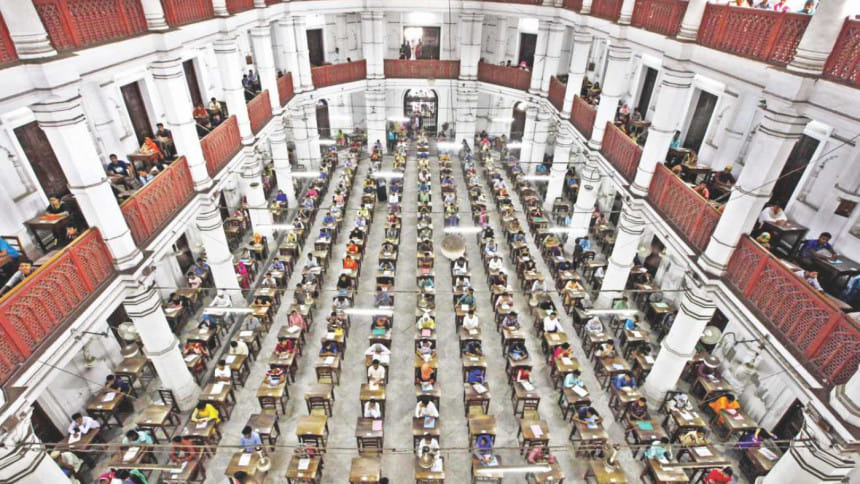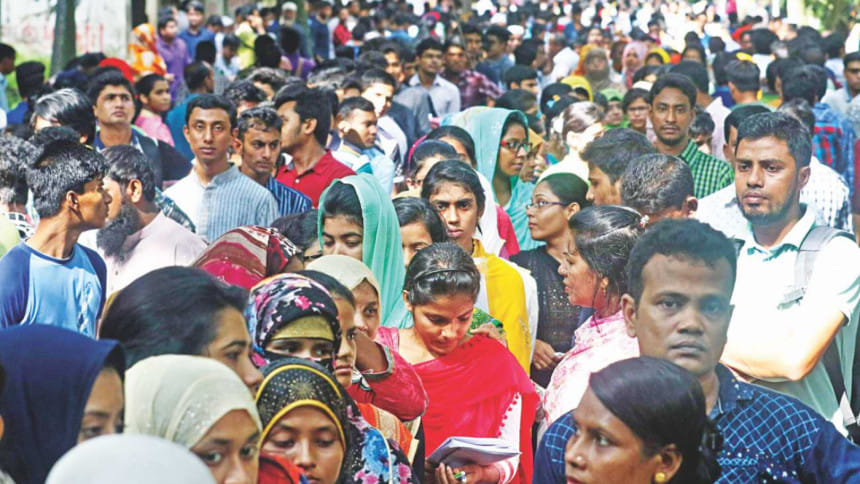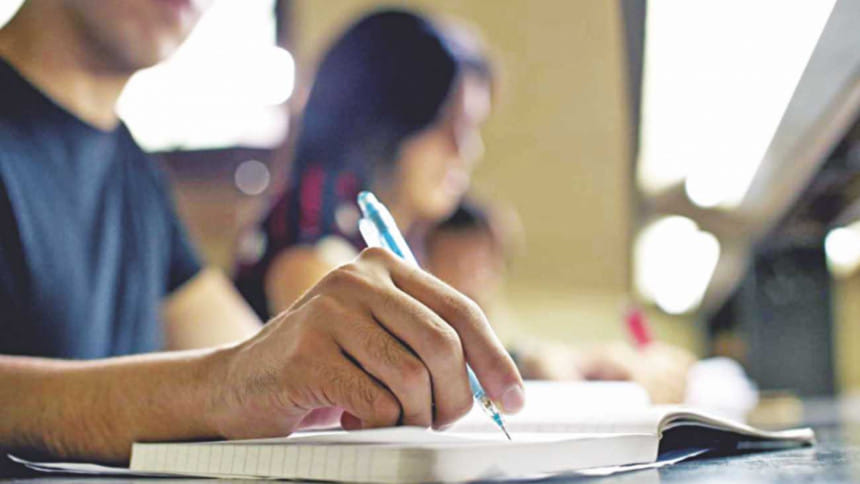Re-thinking Public University Entrance Exams

As a nation progresses, it faces new challenges. The road that brought it to where it stands is usually never the road that will take it forward furthermore. University admission (entrance) exams have undergone changes to keep up with the times. The time has now come to re-think how to make these entrance exams easier and fairer to the majority of the population of Bangladesh that is now more educated than ever.
When our HSC batch of 1987 sat for the university entrance exams in 1988, there were only five general universities: Dhaka, Rajshahi, Chittagong, Jahangirnagar, and Islamic University, Kushtia. Whatever one's social background, a choice had to be made from this set. The exam would be administered either by separate departments or the faculty. All the universities had a rigorous viva so the department or the faculty could determine if the applicant was worthy to be admitted. Although this process was time consuming, it had dual advantage. Both the student and the university could make a comprehensive assessment of one another before making a choice.
From the 1990s, public and private universities have emerged to meet the challenges. Today, Bangladesh has almost 40 public universities and more than 100 private universities. Although this poses an opportunity, it also raises a big moral question: can the nation afford to keep on having each public university hold separate entrance exams?

Every system has its pros and cons. Separate entrance exams reduce the chance of failure. If a student sits for five exams, then maybe he/she will qualify for at least one university. This is easier said than done. In 1988, the public university authorities did not have to worry about clashing of dates. This has now become a major challenge. The authorities have to sit to avoid date clashing. This is just one part of the whole story.
With public universities scattered throughout the country, students need to travel from one university to another in between the dates. In 1988, travelling outside Dhaka to Rajshahi, Chittagong or Kushtia was a fun experience. In 2016, it has become humanly impossible. Add to this that the same subject is found in more than one university. There's still more to the whole story. Female students in particular who come from, say Thakurgaon, need to travel with at least one guardian if they want to sit for the entrance exams of the public universities in say Dhaka. This is not only inconvenient for families, it also strains their budget.
In 1988, students could choose from only five universities. This included everybody in the social ladder. Also in 1988, not too many people would seek higher education as they do now. The emergence of private universities and their concentration in Dhaka has had one important effect on the choice of a university. Parents who would ideally want their children to live near home, and can afford to pay the costs, will opt for these universities. With students from these families leaving the application pool in public universities, a gap is created. Who would fill the gap? Students from families down the social ladder. These are also families who prefer public universities outside their hometown because these universities provide housing in dormitories.

The American philosopher, John Rawls, defined fairness that addressed ethical and moral foundations of a society. Rawls argued that fairness is when the well-being of those in the bottom of the social ladder is improved. Those in the upper part of the social ladder have access to a wide range of means to improve their welfare. This is why the state needs to intervene because university education today is a means for the nation to go forward in reaching its goal to become a middle-income nation.
Recently, the President has requested authorities to seek a way for public universities to avoid holding separate entrance exams. If such a way can be introduced, it would be fair to many students and their parents. As 2017 looms, it is now high time to re-think the entrance exams in the public universities in Bangladesh.
Asrar Chowdhury teaches economic theory and game theory in the classroom. Outside he listens to music and BBC Radio; follows Test Cricket; and plays the flute. He can be reached at: [email protected]

 For all latest news, follow The Daily Star's Google News channel.
For all latest news, follow The Daily Star's Google News channel. 



Comments